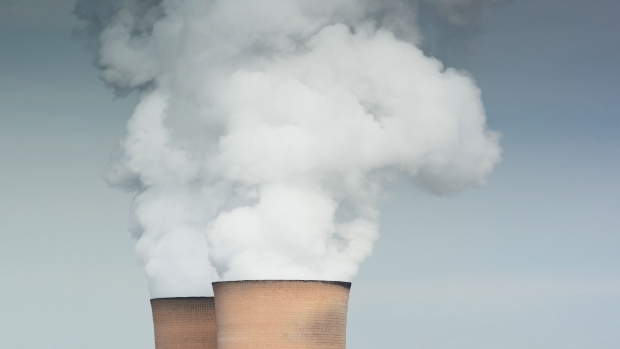Mar 25, 2024
South Africa Wants Biodiversity Sector to Mirror Multi Billion Climate Drive, Minister Says
, Bloomberg News

(Bloomberg) -- South Africa wants to develop national biodiversity goals similar in scale to those it’s pursuing to transition its economy to the use of climate-friendly energy, its environment minister said.
They include boosting the amount of land designated for conservation to allow the large-scale harvesting of meat from antelopes and other wild animals, increasing the production and marketing of products from indigenous plants and promoting leisure hunting and tourism.
“If you think about the climate space 10 years ago, it’s a bit like that space. There were good ideas, there was a vision, there were lots of little projects,” Barbara Creecy, said in an interview at a conference to launch the strategy east of Johannesburg. “If you look at the climate space now, we are talking about very serious whole of society, whole of economy approaches, which we are realizing.”
While South Africa is struggling to lessen its dependence on coal it has put in place a 1.5 trillion rand ($79 billion) five-year plan to develop renewable energy, green hydrogen and electric vehicle industries and won $9.3 billion of climate finance from some of the world’s richest nations to do so. Currently its biodiversity plans consist mainly of small unconnected projects, Creecy said.
The new strategy will aim to capitalize on South Africa’s abundant wildlife, unique ecosystems and experience with conservation models that see wild areas harvested in a sustainable manner. It will also seek to create jobs and income earning opportunities in some of the poorer areas of a country already struggling with one of the world’s highest unemployment rates.
“In a country where you have very, very high unemployment, particularly in rural areas, if you are going to be able to put more land under some form of conservation and restore ecosystem services, you’re going to have to find viable forms of economic activity,” Creecy said.
Other objectives of the plan include:
- Significantly increasing the annual value of the game meat industry to 27.6 billion rand by 2036 from 4.6 billion rand in 2020. Talks are being held with the country’s biggest retailers to promote the sale of game meat and attempts are being made to identify export markets, she said. South Africa’s beef industry is worth about 40 billion rand.
- Boosting the income from pharmaceutical products and food supplements more than sixfold to 11.6 billion rand.
- Raising the amount of land to be protected, in the form of both state and private reserves, to 34 million hectares (84 million acres) from 20 million hectares and a 10% annual growth rate is targeted for ecotourism and aquaculture.
South Africa decades ago prompted a boom in the game farming industry by allowing farmers to own wild animals on their land. Today 80% of the more than 20 million wild animals in the country, which boasts the world’s biggest population of rhinos and is key to the survival of species ranging from lions and cheetahs to sable antelope, live on private land.
“This biodiversity economy can yield enormous benefits,” South African President Cyril Ramaphosa said in a later speech at the conference. “The areas where our people live now should now begin to be transformed from dead capital to beneficial capital.”
(Updates with comment from president in last paragraph)
©2024 Bloomberg L.P.





